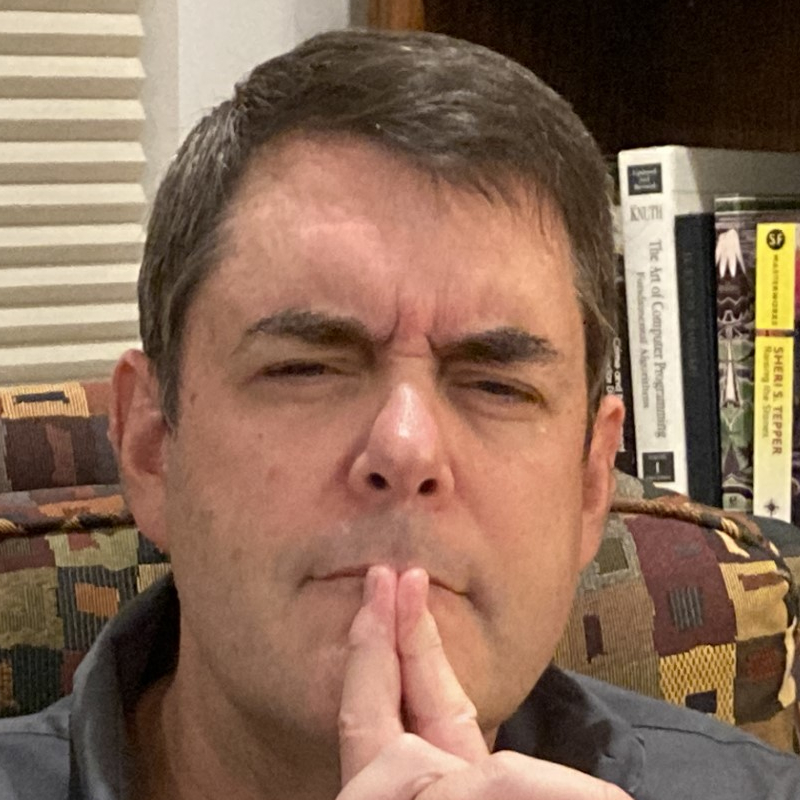
My life arc has been defined by two main pivots. The first was in high school, when I converted to Christianity in a Damascus Road type experience. I was literally on a road, in fact — driving northbound on Broadway in Denver on December 21, 1986 — when my heart leaped and I said out loud to no one, “I do believe this stuff! Wow!”
The groundwork for that moment had been laid down some weeks before when a classmate loaned me a copy of C.S. Lewis‘s Mere Christianity. This book forever altered my worldview. Despite not having gone to church regularly as a child, my 17-year-old self devoured Lewis’s arguments for the faith and his call to action, irrevocably changing everything that came after. God’s fingerprints were all over this episode.
The second pivot happened when I was roughly twice as old and went through a midlife career crisis of sorts. I had been lucratively employed as a software developer for many years, when circumstances suddenly shifted and I felt the unmistakable call of God to go into teaching. I should have known that teaching was my destiny all along: as a child I liked to “play schoolhouse,” and my favorite part of board games was not winning, but explaining the rules.

Amid some remarkable circumstances that to this day I’m unable to explain, I went to grad school full-time for three years and didn’t suffer financial ruin. I was the sole wage earner for a family of four (five, by the time I graduated) and the mountain of debt I had meticulously forecast somehow never came to pass. Those fingerprints again.

Freshly-minted Ph.D. in hand, my young family and I moved cross-country to Virginia, where I’ve been on the Mary Wash faculty ever since. One of the reasons God steered us here, I believe, is that UMW lets me focus on what I love and what I’m best at: teaching undergraduates. I get no bigger buzz than when exploring deep truths with young people, helping them to figure out where they stand and how to succeed. And that’s in life as a whole, not just one circumscribed academic topic.
I was in 6th grade, I think, when I first heard the term “renaissance man” to describe someone who’s interested in, and tinkers with, lots of different things. This is not a popular aspiration in a society that is hyper-specialized and which normally rewards only narrow expertise. But I’m unabashedly curious, even in areas where I have no formal training.
Besides computer science, some of the things that fascinate me are:
- languages, both spoken and written
- the dimensions of human personality
- board games and their strategies
- probabilistic inference
- ways in which highly-functioning sports teams can be more than the sum of their parts
- the immense gap between the intelligence of humans and that of every other known life form
- emergent behavior in complex systems
- correct logical reasoning as compared with how humans actually think
- what role-playing games say about the role players
- the ways in which life on other planets, if it exists, would inevitably resemble ours
- …
I could go on and on (and I will, on this blog). I’m always dissatisfied when people ask me, “what do you teach?” and expect a simple answer like “computer science.” I believe the often artificial boundaries that separate fields and assign people to isolated compartments usually do more harm than good. I don’t think of myself as a “computer science professor” as much as a “professor” — or better yet, a thinker.
– S



Leave a Reply